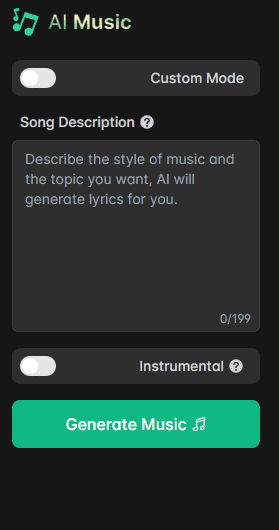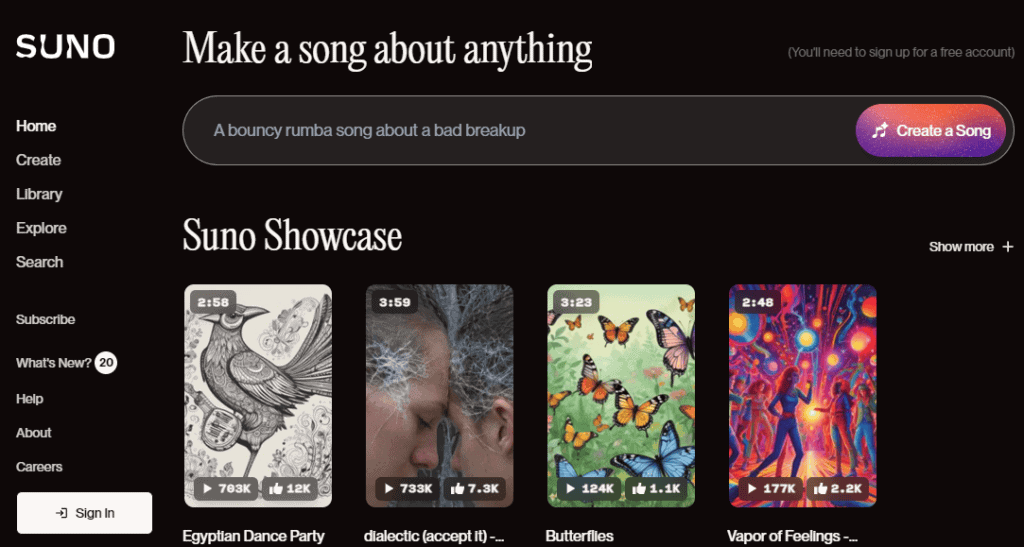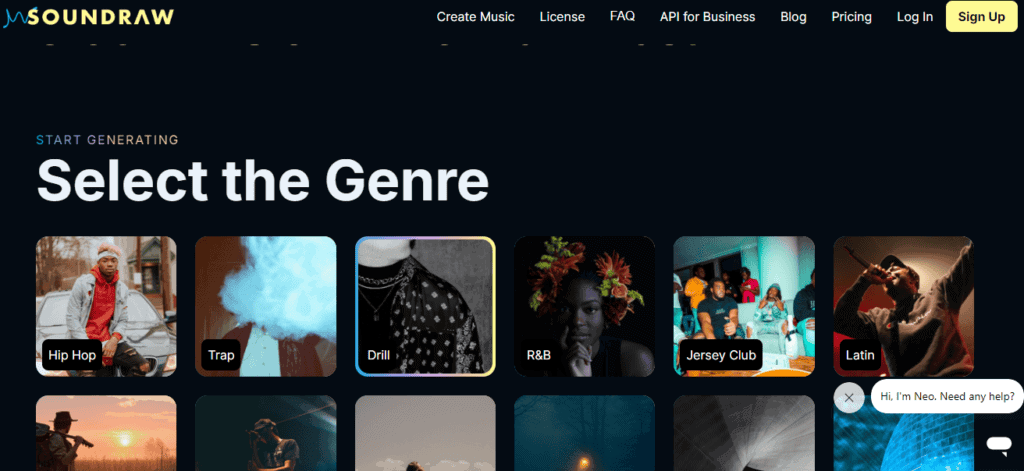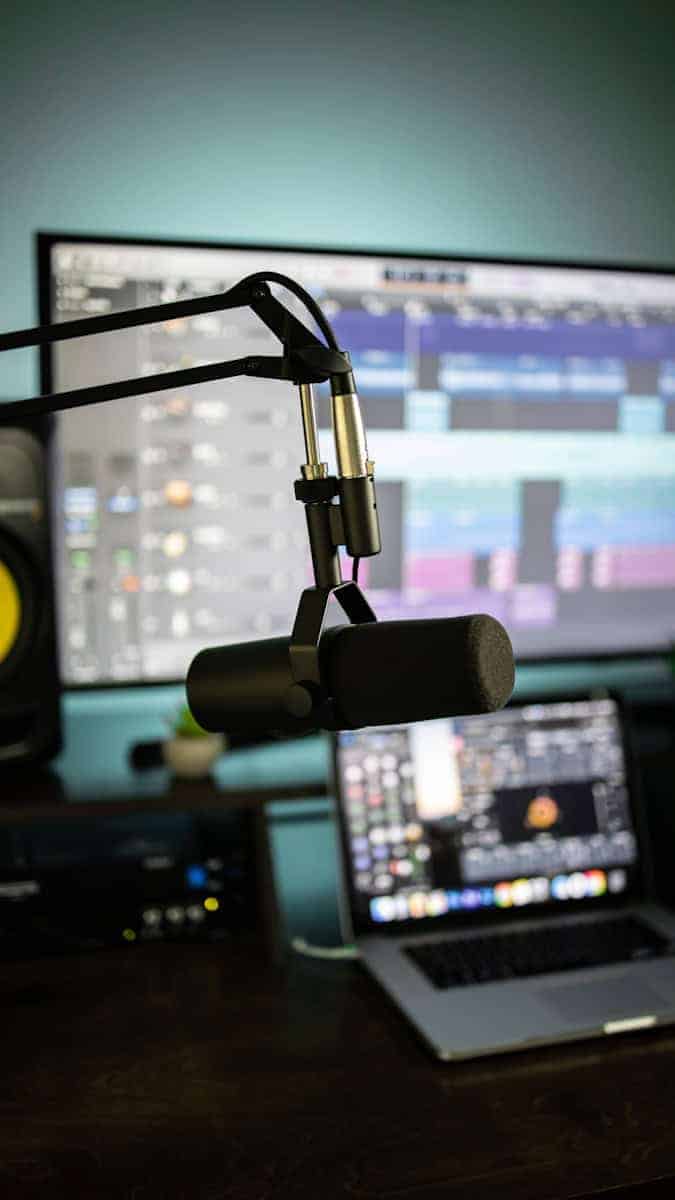AI is transforming the music industry, pushing boundaries and opening up new creative avenues. From music production and composition to distribution and consumption, AI is changing everything. Music technology is evolving rapidly, influencing how we create, share, and enjoy music. Artificial intelligence (AI) is aiding the music industry by automating complex tasks and creating new possibilities. This includes composing music, producing soundtracks, and even predicting trends.
It’s important for music enthusiasts and musicians to stay updated on these changes. AI is rapidly altering the music industry, from the way music is created and produced to how it’s shared and enjoyed. The latest trends illustrate AI’s potential to make music creation accessible to more people, personalize listening experiences, and enhance live performances. As AI advances, we can anticipate more innovative changes in music technology.

The Latest Trends in Music Technology
One intriguing trend is the resurgence of physical music formats like vinyl and cassettes alongside digital streaming services. The blend of old and new demonstrates the diversity of music consumption. Musicians are utilizing new tools and software that make music production more creative and accessible. Fusion genres are also emerging, incorporating elements from different music styles to create unique new sounds. These changes are making music more vibrant and unpredictable.
AI-Powered Music Creation
- AI Composition and Generation: AI algorithms can now generate original music in various genres and styles. These AI composers can even learn from existing music to create pieces that mimic the style of specific artists or genres.
- AI-Assisted Music Production: AI tools are helping musicians and producers streamline their workflow, offering smart suggestions for chord progressions, melodies, and even mixing and mastering techniques.
AI-Driven Music Distribution and Consumption

- Personalized Music Recommendations: Streaming services are increasingly using AI to analyze your listening habits and recommend music that matches your taste, ensuring a more tailored and engaging experience.
- AI-Powered Music Curation: AI algorithms can now curate playlists and radio stations based on mood, activity, or genre, providing endless music options to suit any occasion.
- AI-Generated Album Covers and Visuals: AI tools are also making their mark on the visual side of music, generating unique and eye-catching album covers and visualizers based on the music’s mood and style.
Other Notable Trends
- AI-Powered Live Music Experiences: AI is enhancing live performances with features like real-time audio effects, interactive visuals, and personalized stage lighting.
- AI-Based Music Education: AI-powered tools are revolutionizing music education, offering interactive lessons, adaptive feedback, and personalized learning paths.
- AI and Music Copyright: AI is being used to streamline music copyright management, making it easier for artists and rights holders to track and protect their work.

| Trend | Description | Impact |
|---|---|---|
| AI Composition and Generation | AI algorithms generate original music. | Expands creative possibilities and accessibility to music creation |
| AI-Assisted Music Production | AI tools help streamline music production workflows. | Enhances productivity and efficiency in music production |
| Personalized Music Recommendations | Streaming services use AI to recommend music tailored to your taste. | Improves music discovery and creates a more engaging listening experience |
| AI-Powered Music Curation | AI algorithms curate playlists and radio stations. | Offers diverse and personalized music options |
| AI-Generated Album Covers and Visuals | AI tools generate unique and eye-catching visuals. | Adds a new dimension to the visual aspect of music |
| AI-Powered Live Music Experiences | AI enhances live performances with real-time effects and visuals. | Creates more immersive and interactive live music shows |
| AI-Based Music Education | AI-powered tools revolutionize music learning. | Makes music education more accessible and engaging |
| AI and Music Copyright | AI streamlines music copyright management. | Protects artists and rights holders |
Key Takeaways
- AI is revolutionizing music creation and prediction.
- Physical formats like vinyl are making a comeback.
- Fusion genres are reshaping popular music.
Innovation in Music Technology
Music technology has seen rapid changes in recent years. From AI-generated soundtracks to new methods for promoting music online, these innovations are reshaping how music is created and shared.
Advancements in Artificial Intelligence
Advancements in AI are revolutionizing music production and mastering. AI tools can analyze music trends, suggest chord progressions, and even create complete tracks. Google’s DeepMind is an example, as it generates soundtracks from text prompts.
AI also helps with remixing and mixing. Tools like LANDR use AI to master tracks, giving independent artists access to professional-grade services. AI-driven platforms are changing how music is consumed and made, with programs capable of writing lyrics and composing music.
The Growth of Music Streaming Platforms
Streaming platforms like Spotify and Qobuz dominate music consumption today. These services offer vast libraries and personalized recommendations based on listening history. Statistics show that streaming is now the primary way people listen to music.
Streaming platforms also impact how artists earn royalties. Record labels and independent artists alike need to understand the economics of streaming to maximize their income. Many platforms offer tools for marketing and audience engagement, essential for reaching new fans.

Emergence of Social Media in Music Promotion
Social media sites like TikTok, Instagram, and YouTube are crucial for promoting music. Artists use these platforms to share snippets, engage with fans, and reach a global audience. Viral trends on TikTok can propel unknown artists to stardom quickly.
Email newsletters and direct messages also play a role in promoting music. Artists and labels often use these channels to keep fans informed about new releases and concerts. Social media analytics help artists tailor their marketing strategies for better engagement.
Global Music Scene and Technology
Technology has made the global music scene more accessible. Artists from the United States, Brazil, China, and other countries can easily reach international audiences. Streaming and social media enable fans to discover music from different cultures, including K-pop and Latin genres.
Distribution platforms allow artists to share their music worldwide without a label, fostering a diverse and rich music scene. The use of technology in music production, marketing, and distribution has made it possible for artists from all over to influence and collaborate with each other.
Frequently Asked Questions
This section covers recent advancements in music streaming technologies, artificial intelligence in music creation, updates in music software, virtual reality in concerts, innovations in sound engineering, and blockchain technology in music distribution.
What advancements in music streaming technologies have emerged recently?
New music streaming technologies have improved how users find and experience music. Enhanced algorithms now personalize playlists better than before. Higher quality audio streaming options and offline listening features are also becoming standard.
How is artificial intelligence shaping the creation and production of music?
Artificial intelligence helps musicians and producers by automating parts of the creative process. AI can generate melodies, suggest chord progressions, and even mix tracks. AI tools analyze popular tracks to find patterns that can help create new hits.
What are the latest developments in music software and plugins for producers?
Recent updates in music software include more intuitive user interfaces and better integration with hardware. New plugins offer advanced sound manipulation, making it easier for producers to shape their music. Popular platforms like LANDR and BandLab continue to evolve with innovative features.
How have virtual reality concerts and events influenced the music industry?
Virtual reality concerts let fans experience live events from home. These VR events offer a more immersive experience than traditional video streams. Artists can create unique virtual environments to enhance their performances, reaching audiences worldwide.
What innovations in sound engineering have changed the way we experience music?
Innovations in sound engineering include 3D audio and binaural recording, which provide a more realistic listening experience. Advanced software now allows precise sound customization. These changes make music sound more lifelike and engaging for listeners.
In what ways has blockchain technology been implemented in music distribution?
Blockchain technology ensures fairer royalty distribution by providing transparent records of music plays. It also helps protect artists’ rights by recording ownership details immutably. Platforms using blockchain can offer more secure and reliable ways to distribute music.







